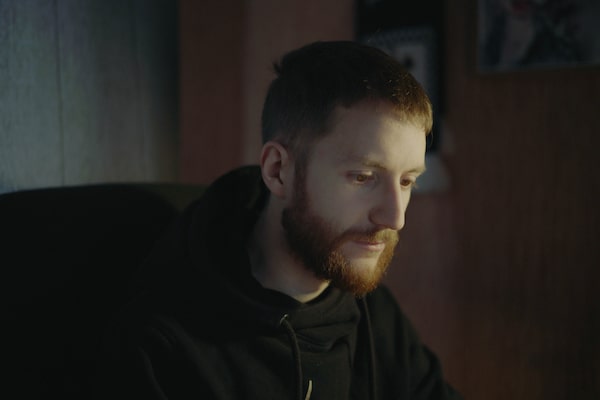
Russian photojournalist David Frenkel edits pictures on his laptop in St. Petersburg this past October, about 16 months after he covered alleged voting irregularities at a polling station and had his arm broken by a police officer.Photography by Mary Gelman/The Globe and Mail
This story is part of a series, Moral Courage, exploring the dangers journalists face around the world. Learn more below.
In summer 2020, a referendum was held in Russia to amend the country’s constitution. On the ballot were changes that allowed President Vladimir Putin to run for two further six-year presidential terms, banned same-sex marriages, enshrined patriotic education in school curriculums and placed the constitution above international law. On June 30, Russian photojournalist David Frenkel received an alert via the messaging app Telegram of potential voting irregularities at a nearby polling station in central St. Petersburg. He hurried over to see what was happening.
From what he could discern, the tensions related to the stuffing of a ballot box with fake votes and attempts to illegally remove election officials who were questioning the validity of these votes. Mr. Frenkel’s sudden appearance in the midst of this commotion was not welcomed by the police and others at the scene he surmised were agent provocateurs.
What transpired next is captured in a brief, disturbing video clip. Mr. Frenkel is seen filming the scene on his mobile phone. A police officer, later identified as Sergeant Denis Dmitriyev, approaches him, pushes him backward and wrestles him to the floor. As he does so, there is an audible crack. Mr. Frenkel yells out in pain. The crack is the sound of his arm breaking.
As Mr. Frenkel lays on the ground in agony, another man subsequently identified as Dmitry Abramov, a former city lawmaker from the ruling United Russia party, approaches him, accuses him of feigning distress, and yanks on his broken limb. When Mr. Frenkel screams in pain, Mr. Abramov laughs and walks away.

In hospital, Mr. Frenkel used his cellphone to document the injuries to his right arm and chest.
Mr. Frenkel was taken by ambulance to hospital, where he underwent surgery later that day. Weeks of rehabilitation followed. Ever motivated, he continued his investigative work even when partly incapacitated after surgery, his right arm heavily strapped and unable to hold a camera.
Along with other colleagues, he worked to shed light on Russian government attempts to block media access to the internet, the administration’s manipulation of COVID-19 data to obscure an inept response to the pandemic, and the suppression of human rights in Belarus.
While Mr. Frenkel’s assault was widely reported, neither Sergeant Dmitriyev nor Mr. Abramov faced disciplinary action. Instead, Mr. Frenkel was fined 500 rubles (around $10) for failing to obey the officer’s instructions.
What is unusual about this episode is not the roughing up of a Russian journalist. After all, when seen alongside the near-fatal Novichok poisoning and subsequent incarceration of opposition leader Alexey Navalny, a fractured arm is essentially small print in terms of state-sanctioned human rights abuses. Rather, what stands out in this sorry episode is that Mr. Frenkel, 29, happens to be a physicist with a degree from ITMO University, one of Russia’s leading research institutions. His particular expertise is in liquid crystals.
That Mr. Frenkel came to find himself with a camera recording voting irregularities may be traced in large measure to his outrage at Mr. Putin’s increasingly dictatorial rule and the unravelling of the rule of law in Russia today. “For some people in Russia, it has become uncomfortable just to do your job,” he said. “Being a scientist, it’s not enough. You do your job, you do it well, but it’s not enough to be a good person any more.”
For those Russians like Mr. Frenkel, who view the dismantling of a nascent democracy – hard-won following the years of perestroika and glasnost – as unacceptable, silence is not an option. Passivity is intolerable. Saying and doing nothing induces guilt. Combine this emotion with anger and shame at the egregious behaviour of the ruling party, and the resultant mix fuels a moral courage that compels dissent and defiance. In Mr. Frenkel’s case, this entails taking photographs – often at considerable personal risk.

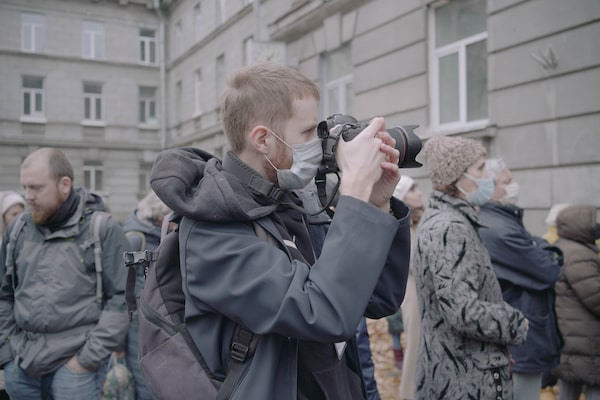
Mr. Frenkel takes photographs at the scene of a community action to protect a historic building in St. Petersburg.
In trying to understand Mr. Frenkel’s evolution from physicist to photographer, it is helpful to look at his early, formative influences. His family is Jewish, and his father is a Yiddish scholar and translator who photographed his suppressed religion and culture during the Communist era. Jewish religious holidays were forbidden, and therefore celebrated secretly. Mr. Frenkel’s father documented this underground resistance to Soviet orthodoxy – activities that came with their own risks. For example, his work provides a pictorial record of the life of refuseniks, Jews who were persecuted by the state for wanting to emigrate to Israel. Fired from their jobs (and unable to find equivalent positions since under communism, the only employer was the government), highly educated citizens were forced into menial positions to avoid being arrested as “social parasites,” the Soviet label for those who were unemployed and therefore not contributing to the state. Refuseniks found themselves in this purgatory for years.
By the time David Frenkel was born, the era of the refuseniks was largely over. If his love of photography was sparked by his father, his commitment to human rights comes from a family ethos of tolerance that includes support for Russia’s LGBTQ community. It was while photographing a LGBTQ rally backing workers’ rights that Mr. Frenkel fell victim to another relic from the Soviets’ old playbook for suppressing dissent – namely their co-opting of psychiatry. A 2016 rally on the Nevsky Prospekt, St. Petersburg’s storied thoroughfare, was disrupted by activists from the National Liberation Movement (NLM), supporters of Mr. Putin. They attacked Mr. Frenkel too, punching and kicking him and trying to break his camera. The attack was captured on video. When Mr. Frenkel subsequently filed a complaint with the police, he was promptly arrested and accused of impeding the NLM members. Caught unawares by the LGBTQ protest, the police threatened Mr. Frenkel with incarceration in a psychiatry ward if he did not divulge information on the rally’s organizers.
Mr. Frenkel had every reason to take this threat seriously. Three years earlier, activist Mikhail Kosenko, who had a past history of depression, was sentenced to enforced psychiatric detention and treatment for joining a protest against Mr. Putin the day before the President’s third inauguration. Despite widespread outrage at the decision, the conviction was upheld on appeal. This purloining of psychiatry had reached its apotheosis under Soviet rule when psychiatric wards, called psikhushkas, were used to confine political dissidents who were often forcefully medicated with anti-psychotic drugs. A discredited psychiatric diagnosis, “sluggish schizophrenia,” was so conveniently vague that perceived resistance to the state was deemed evidence of mental illness. Thousands of dissidents fell victim to medical abuse.
When Mr. Frenkel refused to divulge information about the LGBTQ march to the police, a call was made to psychiatric services and an ambulance with three male orderlies arrived. In the struggle that ensued, Mr. Frenkel was grabbed around the neck by one of the orderlies – “strangled” is how he describes it – while the other two forcefully tied his hands together. What worried Mr. Frenkel more than his physical assault, however, were the accompanying verbal threats that he would be injected and detained in a psikhushka. There were antisemitic overtones as well – snide remarks from the police about his surname being unusual for a Russian.
The traumatic episode ended with the arrival of Mr. Frenkel’s father, future wife and a group of friends. In the era of Brezhnev and Andropov, their presence would have counted for little. But in the Russia of today, despite recidivist tendencies, permission was sought from Mr. Frenkel’s father to have his son taken away for psychiatric assessment. He refused, and Mr. Frenkel was released.
An attempt by Mr. Frenkel to bring charges against the police and medical personnel who had assaulted him came to nothing – the Russian courts refused to hear his case. Instead, he was informed that he had “behaved strangely” while in custody and that the psychiatric orderlies had been dispatched for his own safety. This approach, according to Mr. Frenkel, provides a loophole that allows these abuses to continue. Mr. Frenkel’s complaint is now before the European Court of Justice, where it languishes.

Mr. Frenkel looks at photos on his camera at his home in St. Petersburg. Like many journalists in Russia, he puts himself at great risk in documenting human rights abuses by the state.
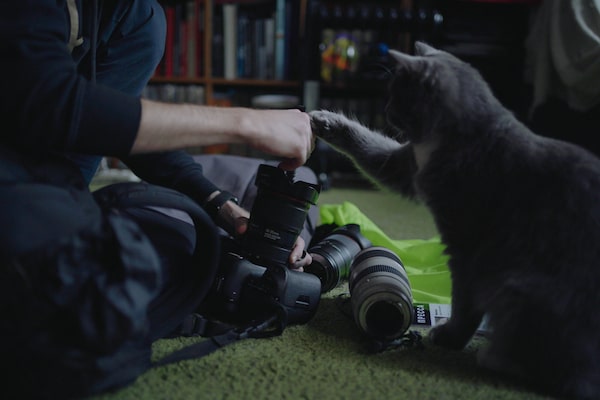
Mr. Frenkel shares a moment with his cat before cleaning his camera equipment. He's complained that Russian authorities have used the threat of enforced psychiatric detention to intimidate him.
Mr. Frenkel’s difficulties as a journalist did not end there. He had been working at the time as a freelance photographer on assignment for Kommersant, a nationally distributed daily newspaper – whose management not only offered him no support, but were incensed at having their name associated with his arrest. Being a freelancer meant that he had no accreditation documents on him when detained. This was held against him as evidence of unprofessional conduct.
The whole episode left Mr. Frenkel feeling angry. It also galvanized him to make two important changes. The first was to narrow his journalistic focus, by shifting his lens from news in general to only those stories involving police brutality and human rights abuses. The second was to find a news agency that would support him in such work.
He settled on MediaZona, the online outlet founded by Maria Alyokhina and Nehezhda Tolokonnikova, members of the Russian feminist punk-rock and performance art group Pussy Riot. The current editor, Sergey Smirnov, who was sentenced in February to 25 days of “administrative arrest” at an immigration detention centre for retweeting a joke about an upcoming anti-government protest, offered Mr. Frenkel a position as staff photographer.
How long this arrangement will last is uncertain. Only last month, MediaZona and Mr. Smirnov were deemed to be foreign agents by the government – a move designed to hobble the organization with endless paperwork, audits and the perpetual threat of fines and imprisonment should compliance fall short.
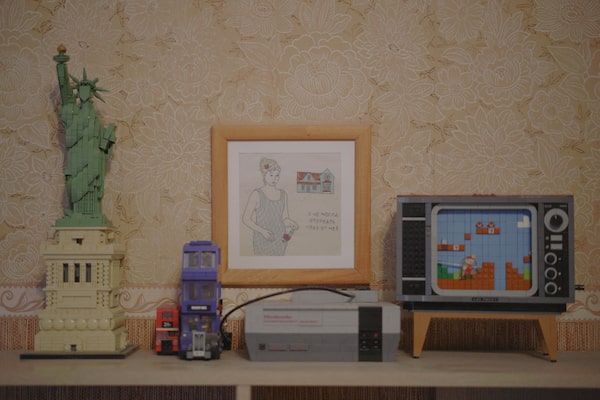
The interior of Mr. Frenkel's apartment in St. Petersburg, Russia.
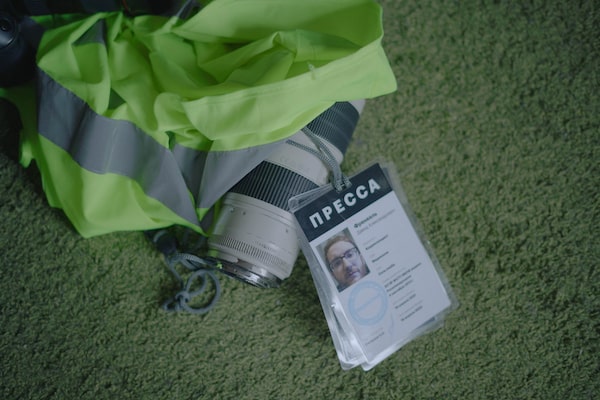
Personal items and tools of the journalistic trade lie around Mr. Frenkel's apartment. Mr. Frenkel is currently a staff photographer at MediaZona, an outlet founded by two members of the punk-rock activist band Pussy Riot.
Mr. Frenkel draws a distinction between his actions as a photographer and what he considers far more courageous behaviour displayed by Russian journalists covering the restive northern Caucasus region, citing the investigative reporting of the Novaya Gazeta journalist Elena Milashina, who has been attacked and has received death threats – including one from Chechen leader Ramzan Kadyrov. To be sure, there is a continuum of risk. At one extreme, there is Ms. Milashina and her colleague, Anna Politkovskaya, the author of Putin’s Russia: Life in a Failing Democracy, who also chronicled human rights abuses committed by Russian forces and Chechen rebels in the second Chechen War, and who was murdered in a contract killing in 2006 on October 7 – Mr. Putin’s birthday.
But what Mr. Frenkel does not say is that his life would undoubtedly be safer and more financially stable if he confined his work to physics, his profession by training. He has, however, chosen a different path. “When election monitors get beaten, you cannot sit by and watch,” he told me. “You cannot close your eyes.” And so he finds himself traversing this continuum of risk, “a few steps behind the northern Caucasus” in his estimation, but “heading in the same direction.”
Novelist Philip Roth has written of “family as the maker of character” and a “primary, shaping influence.” Decades back, David Frenkel’s father picked up a camera to document a suppressed religion and dying culture. His son now turns his lens to record a subjugated democracy and the human rights abuses that are the signature of a repressive regime. Are these choices linked? One cannot be certain, but there is much wisdom in Roth’s wise observation. What is clear is that these decisions are, in large measure, driven by a moral imperative. Father and son, photographers by conviction, not training, have kept their eyes and camera shutters open – capturing not only the dark moments in their shared history, but the resilience of the human spirit in refusing to buckle.
Democracy and the media in Russia have been under siege for years. The awarding of this year’s Nobel Peace Prize to Novaya Gazeta’s editor, Dimitry Murativ (shared with Philippine journalist Maria Ressa) is unlikely to change this. The country is rated 150 out of 180 nations on Reporters Without Borders’ index of world press freedom, where it has been firmly entrenched for years. Mr. Frenkel’s history helps explain why.
It also reveals the impotence behind state-sanctioned brutality. Crude force can indeed break bones. But in rare individuals, it cannot dent moral courage. A beaten and pilloried physicist-turned-photographer is testimony to that.
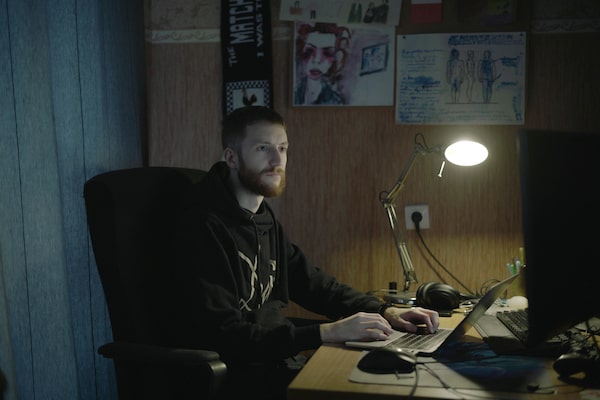
Mr. Frenkel edits photos on his computer at his home in St. Petersburg.
Moral Courage: About the series
Journalists are key to civil society, keeping readers, viewers and listeners informed of events both local and international. At times, this work entails exposure to grave danger. The factors that motivate journalists to continue this work despite these threats are many and complex, but central to it all is moral courage. Simply put, to some journalists, doing nothing in response to the egregious behaviour of corrupt or genocidal politicians, human traffickers and drug cartels is worse than the repercussions that come from exposing such crimes. These journalists are driven by a moral imperative to risk their own safety and psychological well-being for the story – and the price paid for this steely determination is invariably steep.
Anthony Feinstein, a psychiatrist at Sunnybrook Health Sciences Centre and professor of psychiatry at the University of Toronto, is an authority on the psychological effects of conflict on journalists. Together with Dr. Feinstein, The Globe and Mail is running Moral Courage, a project that will feature frank and intimate interviews between Dr. Feinstein and a journalist working in hazardous situations around the globe. Each story showcases the work of these journalists, the factors that explain why they feel compelled to pursue such an all-encompassing mission, and the personal consequences their work entails.